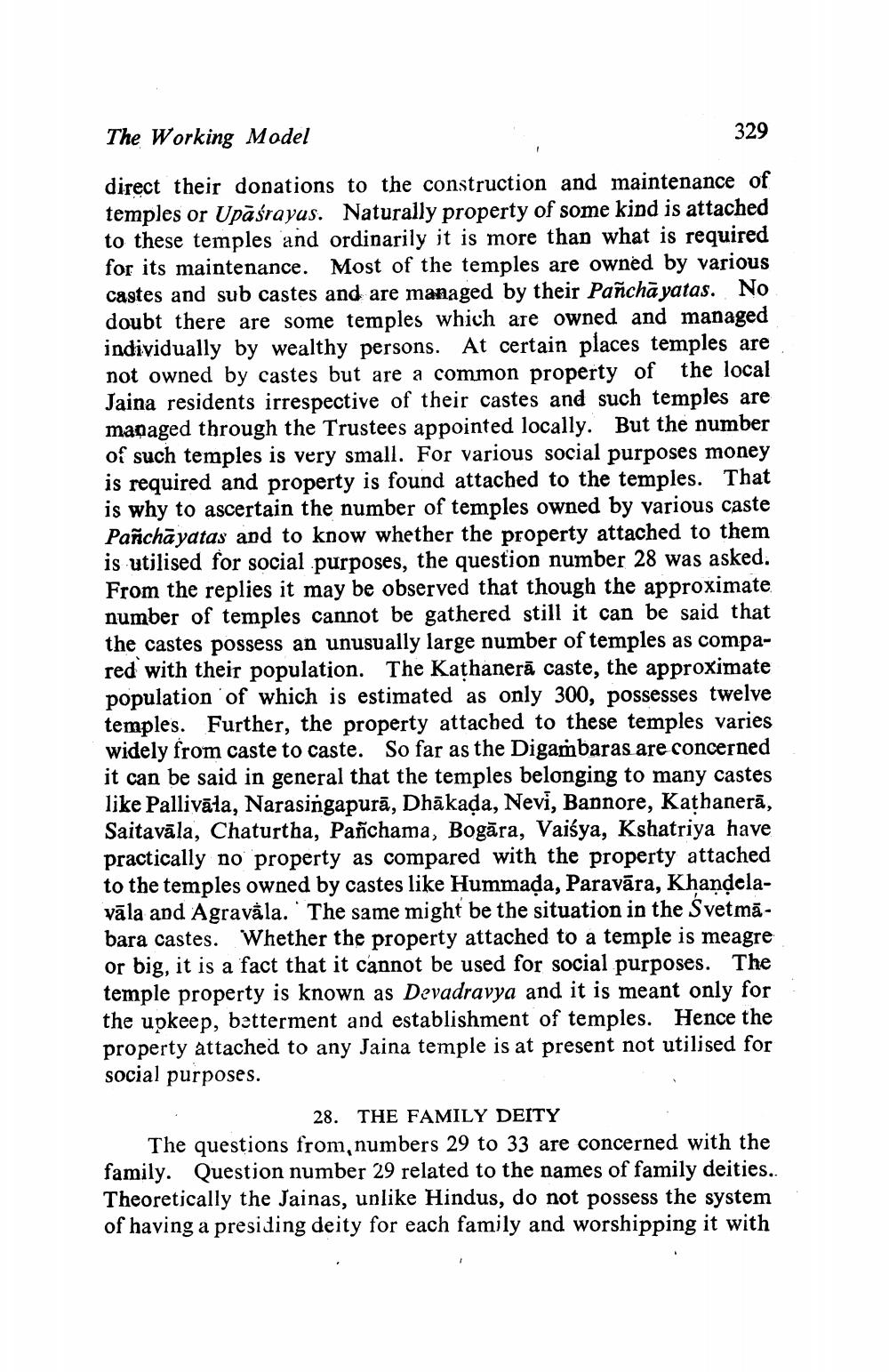________________
The Working Model
329
direct their donations to the construction and maintenance of temples or Upāśrayas. Naturally property of some kind is attached to these temples and ordinarily it is more than what is required for its maintenance. Most of the temples are owned by various castes and sub castes and are managed by their Pañchāyatas. No doubt there are some temples which are owned and managed
dividually by wealthy persons. At certain places temples are not owned by castes but are a common property of the local Jaina residents irrespective of their castes and such temples are magaged through the Trustees appointed locally. But the number of such temples is very small. For various social purposes money is required and property is found attached to the temples. That is why to ascertain the number of temples owned by various caste Panchāyatas and to know whether the property attached to them is utilised for social purposes, the question number From the replies it may be observed that though the approximate number of temples cannot be gathered still it can be said that the castes possess an unusually large number of temples as compared with their population. The Kathanerā caste, the approximate population of which is estimated as only 300, possesses twelve temples. Further, the property attached to these temples varies widely from caste to caste. So far as the Digambaras are concerned it can be said in general that the temples belonging to many castes like Pallivāla. Narasingapurā. Dhākada, Nevi, Bannore. Kathanerā Saitavāla, Chaturtha, Pañchama, Bogāra, Vaisya, Kshatriya have practically no property as compared with the property attached to the temples owned by castes like Hummaļa, Paravāra, Khandelavāla and Agravăla.. The same might be the situation in the Svetmābara castes. Whether the property attached to a temple is meagre or big, it is a fact that it cannot be used for social purposes. The temple property is known as Devadravya and it is meant only for the upkeep, betterment and establishment of temples. Hence the property attached to any Jaina temple is at present not utilised for social purposes.
28. THE FAMILY DEITY The questions from numbers 29 to 33 are concerned with the family. Question number 29 related to the names of family deities. Theoretically the Jainas, unlike Hindus, do not possess the system of having a presiding deity for each family and worshipping it with




